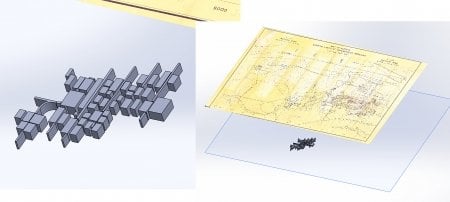Michigan Tech Takes a Silver in Clean Snowmobile Challenge

Michigan Technological University achieved its best finish in five years at the 2009 Society of Automotive Engineers Clean Snowmobile Challenge, finishing second and winning the Yellowstone National Park Award for Second Place.
"I'm happy," said team captain Rob Haack. "We came to win, but overall, I'm satisfied." He attributed their success to getting their machine outside early and often. "Our goal was to get the sled on the snow early," he said. "We focused on testing."
The Tech team took to heart the Challenge's directive to build a cleaner, quieter snowmobile. Its redesigned 2008 Polaris FST Switchback earned the PCB Group Award for the Quietest Snowmobile and the Sensors Inc. Award for Lowest In-Service Emissions. As a result, they received the BlueRibbon Coalition Award for Most Practical Solution, given to the team with the best balance of cost and reduction of noise and emissions.
Tech also received the Founder's Award for Most Sportsmanlike Conduct, which honors the late Bill Paddleford, the Teton (Wyo.) county commissioner who co-founded the Challenge in 2000.
The team received eight nominations for the sportsmanship award, in part for providing other teams with tools they needed to compete and even helping Clarkson University (Potsdam, N.Y.) rebuilt its engine.
"It's been an invaluable experience," Haack said. "We gave it all we had, and I wouldn't trade it for anything."
Michigan Technological University is an R1 public research university founded in 1885 in Houghton, and is home to nearly 7,500 students from more than 60 countries around the world. Consistently ranked among the best universities in the country for return on investment, Michigan's flagship technological university offers more than 185 undergraduate and graduate degree programs in science and technology, engineering, computing, forestry, business, health professions, humanities, mathematics, social sciences, and the arts. The rural campus is situated just miles from Lake Superior in Michigan's Upper Peninsula, offering year-round opportunities for outdoor adventure.




Comments